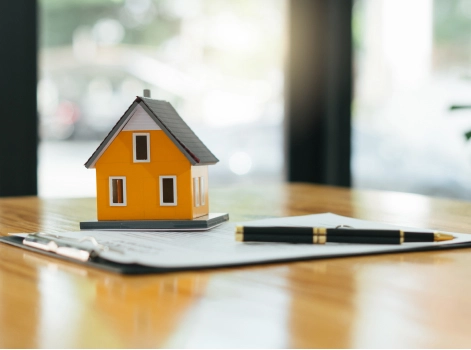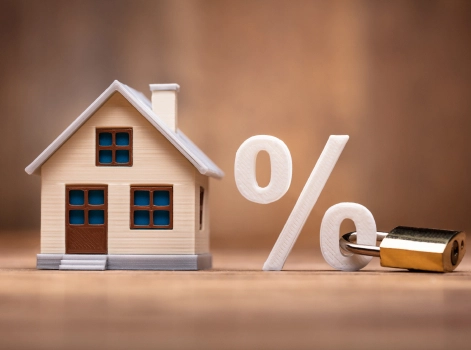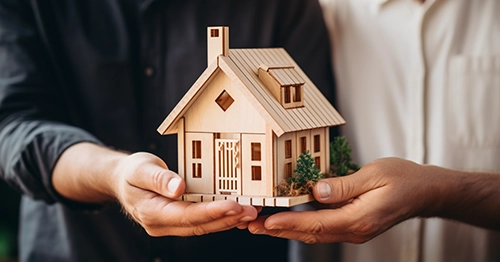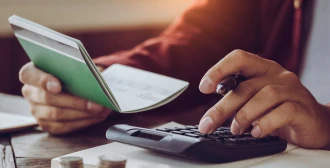Updated: 24 Jul, 2024
It can be one of most difficult decisions to make, to decide whether you want to continue living in someone else’s house or have your own.
And why shouldn’t you have your own house? Research has shown that 70% of all Australian households own a home – one of the largest percentages in the world.
With property prices on the rise, it’s about time that you start planning to buy your own home!
Don’t pay for someone else’s dream!
Did you know that when you pay rent, you are probably helping someone else pay off their mortgage?
Many people take out a home loan on a property and then rent it out so that they can use the rental income to pay their monthly repayments. This way they have both a property in their name as well a source of money to pay off the home loan.
By renting out someone else’s house you are just helping them achieve their investment strat
Don't pay for someone else's dream!
Did you know that when you pay rent, you are probably helping someone else pay off their mortgage?
Many people take out a home loan on a property and then rent it out so that they can use the rental income to pay their monthly repayments. This way they have both a property in their name as well a source of money to pay off the home loan.
By renting out someone else’s house you are just helping them achieve their investment strategy. Now imagine that you have taken a home loan and bought a house, you will still be paying monthly payments, but this time you are gaining equity in your own property.
It's not just a home, it's an investment
Buying a home is much more than just that. You are buying something which you can call your own and can leave for your children to inherit. However, you are also investing your money into an asset which will increase in value over time.
Not only does it have long term benefits for you, but you can also use it as security for other loans as well. Most property investors start off by buying a home, and then use the equity in that property to take a loan for another property, and so on.
How can I learn more about property?
There are a multitude of websites that you can visit to get a good idea about properties and their prices. Mortgage broker and part time property investor Tina Pham, recommends that new buyers visit these websites and read up before making any purchase decisions.
Property investors also tend to read books on the subject, attend seminars held by experts and network with each other in groups. While these may not be entirely relevant to you, a first home buyer can get good tips from professional investors and learn from their experiences.
Do banks favour first home buyers?
Some people think they will have to pay a high interest rate for their first home, but it is just the opposite. In actuality, some banks prefer first home buyers and consider them lower risk borrowers than others.
Some banks may even give you a discount on the standard variable rate of anywhere between 0.6% to 1.0% if you have a large loan and your income, employment and credit history meet their guidelines.
How can I reduce my expenses?
Did you know that first home owners are eligible for First Home Owner’s Grant (FHOG)? If you can meet the qualifying criteria, you could get up to $7000. Depending on the state you live in, you may even get additional grants or exemptions.
This grant can help you cover purchasing costs such as stamp duty and conveyancing fees which can amount to about 5% of the purchase price. Some states will even exempt you from stamp duty for your first home purchase decreasing your costs further.
Can I apply for a home loan?
p>Are you paying off your student loans or car loans and don’t have much in your savings account? Well don’t let that stop you from purchasing your first home. With the help of both banks and non-bank lenders, it is now possible for almost anyone to get a home loan to purchase a property.
From self-employed buyers to non-residents to people who have been bankrupt and even students on a scholarship, everyone has a chance to get a loan as long as they apply with the right bank.
How much should I save?
Sometimes you may be in a strong financial position, with a steady job and clear credit history but you may not have been able to save much. This could be due to various reasons; maybe you just finished paying off your car loan, you recently got married or you bought an expensive camera to practice photography.
The problem is that most banks will want to see borrowers who have a long history of savings.
Traditionally, this would mean that you would have to save up for at least three to six months before you could even think of applying for a home loan. However, lenders today are more considerate towards borrowers and now you even have the option to get a home loan with a 5% deposit.
What if I have no deposit?
If your parents own a property, you can even get a 100% guarantor home loan for your purchase. As a first home buyer you can even borrow up to 105% in case you need the money to cover stamp duty and other fees.
The best part about guarantor loans is that you may not even need to pay Lenders Mortgage Insurance (LMI) if your parents have enough equity in their property. This can reduce your expenses by 2% to 4% of the loan amount.
Do you have genuine savings?
Genuine savings usually refers to any money accumulated in your bank account over a minimum period of three months. Most lenders will ask for proof of genuine savings regardless of what loan product you select in order to see how well you can manage your money.
But what if your rent doesn’t allow you to save enough? Will you have to save up for an eternity before you have enough to put up as a deposit? Most young borrowers face this problem and banks treat them as if they are not good at managing their finances.
The good news is that there are lenders who will consider your rental payments as genuine savings. The reasoning behind this is that if you were not paying rent, these amounts would be going to your savings instead, which means that you are reliable.
What if you can’t afford to buy in your ideal location?
Just because you cannot afford to buy a house in the area you would like to live in, it does not mean that you should give up the dream of owning a house. Tony Hayek, CEO of Blue Wealth Property explains that he advises such clients to rent in the suburb where they want to live in, and invest in a house somewhere else.
This way they can own a house, have an investment property and also live in their ideal location at the same time. Another benefit is that the debt incurred by your investment can be used to reduce your tax payable to the government.
How do I buy my first property?
All of our property investment experts agree that research is the key to making good property purchase decisions. Remember that along with the feelings of ownership, your home also serves as a long term investment, if not for you, for your children.
So use what resources you can, speak to your family members, accountant, mortgage broker and real estate agent. Don’t rush into a purchase, take your time and plan accordingly, but don’t put the decision off either.
What do you think about the whole “Rent Vs. Buy” argument?









